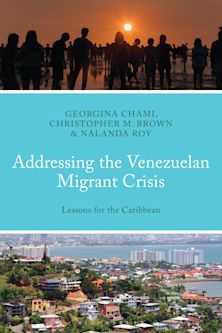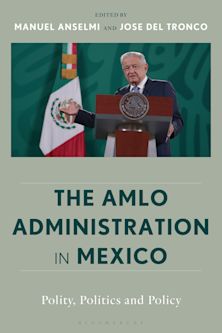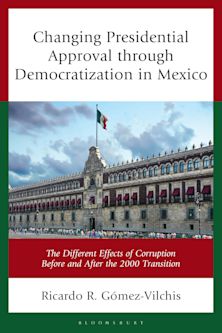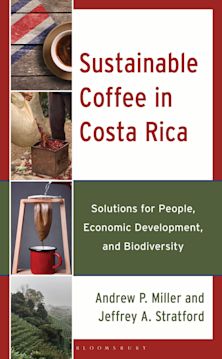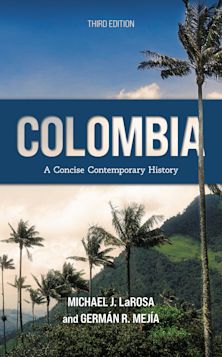The Criminalization of States
The Relationship between States and Organized Crime
The Criminalization of States
The Relationship between States and Organized Crime
This product is usually dispatched within 3 days
- Delivery and returns info
-
Free US delivery on orders $35 or over
Description
This volume examines the relationship between states and organized crime. It seeks to add to the theoretical literature for analyzing the criminalization of the state. The volume also explores the nature of organized crime in countries throughout the Americas from Central America to the Southern Cone.
Table of Contents
Jorge Chabat
2.Organized Crime in Mexico: State Fragility, “Criminal Enclaves,” and a Violent Disequilibrium-
Nathan Jones
3.The Dimensions of Violence in Mexico:
Roberto Zepeda and Jonathan D. Rosen
4.Combating Organized Crime, Violence, and Public Insecurity in Mexico: The Case of Tijuana:
David Rocha, Roberto Zepeda, and Jonathan D. Rosen
5.The Collapse of Mexico’s Police and the Militarization of Public Security-
Sigrid Arzt
6.At a Crossroads: Can Guatemala Prevail in Fight against Violence?
Adriana Beltrán
7.Chronic Violence, Organized Crime, and the State in El Salvador-
Christine J. Wade
8.Green Crime: The Environmental Links between States and Organized Crime-
Mark Ungar
9.Organized Crime and the State in Venezuela under Chavismo-
John Polga-Hecimovich
10.Making Sense of Colombia’s “Post-Conflict” Conflict-
Adam Isacson
11.Colombia after the FARC-
Victor J. Hinojosa
12.The Colombian Peace Accord: Historic Achievement, Daunting Obstacles-
Bruce Bagley and Jonathan D. Rosen
13. Corruption in Colombia-
Fernando Cepeda Ulloa
14.How Does the State Determines Illegal Drugs and Organize Crime? Evidence from Ecuador-
Nashira Chávez and Pryanka Peñafiel
15.Coca, Organized Crime, and (Non-)Violence in Bolivia
Marten W. Brienen
16. Organized Crime and the State in Brazil-
Michael Jerome Wolff
17.Organized Crime in Argentina: The Politics of Laissez-Faire-
Sebastián Antonino Cutrona
18.Conclusions-
Bruce Bagley, Jorge Chabat, Amanda M. Gurecki, and Jonathan D. Rosen
Product details
| Published | Apr 05 2023 |
|---|---|
| Format | Paperback |
| Edition | 1st |
| Extent | 390 |
| ISBN | 9781498593021 |
| Imprint | Lexington Books |
| Illustrations | 18 tables; 9 graphs; |
| Dimensions | 9 x 6 inches |
| Series | Security in the Americas in the Twenty-First Century |
| Publisher | Bloomsbury Publishing |
Reviews

ONLINE RESOURCES
Bloomsbury Collections
This book is available on Bloomsbury Collections where your library has access.












